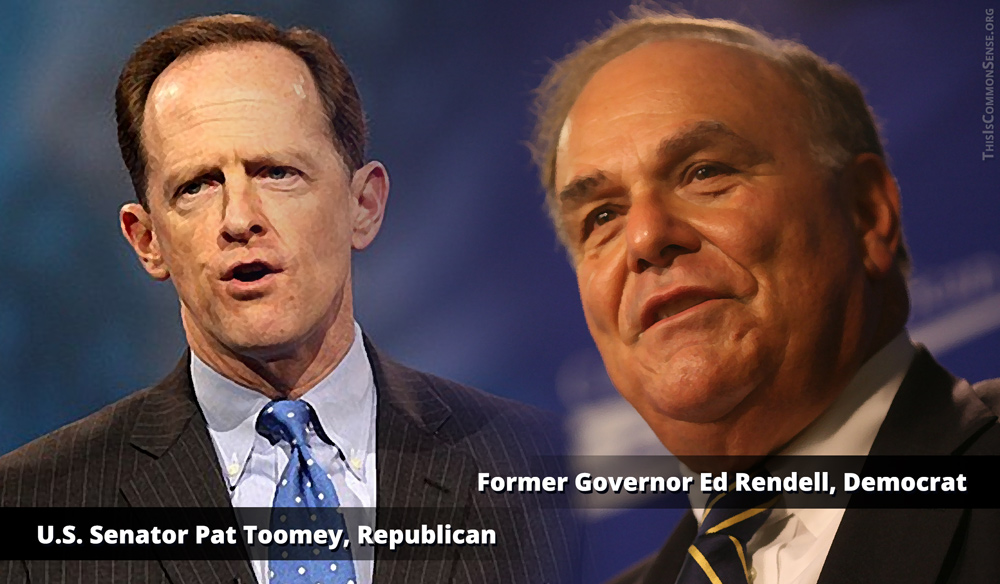Today is Term Limits Day. Why celebrate:
Listen: We Wish You a . . .


Today is Term Limits Day. Why celebrate:

Saturday is Term Limits Day.
Boy, this holiday season really sneaked up on me.
No excuse, though, because Term Limits Day falls on February 27th every year. On that date in 1951, the 22nd Amendment to the Constitution was ratified, limiting the president to two terms in office.
Call it the constitutionalization of the small-r republican example George Washington set so well by voluntarily stepping down after two terms as chief executive. That “tradition” lasted for nearly 150 years . . . until FDR sought and won a third term in 1940.
In addition to presidential limits, tomorrow let’s also cheer term limits on 15 state legislatures (including big states such as California, Florida, Ohio, Michigan), and those covering 36 governors as well as thousands of local elected officials, including in nine of the nation’s ten largest cities.
Of course, while we celebrate Term Limits Day — in this pandemic, mostly on social media — let’s remember where mandatory rotation out of elected office does not exist, yet is most desperately needed: Congress.
Since career politicians aren’t going to term-limit themselves, U.S. Term Limits has launched a “national effort to bypass Congress and put term limits on House and Senate through the Term Limits Convention.” The convention requires 34 state legislatures to take action and that in turn requires us to act at the grassroots in our states.
Already there is impressive movement. In the last week, resolutions for a Term Limits Convention have passed through key committees and entire chambers in Arizona, Georgia, and North Dakota. Much more is in the pipeline.
Term Limits Day, tomorrow, makes a great day for a contribution to the term limits cause. But there’s no time better than the present.
This is Common Sense. I’m Paul Jacob.
—
See all recent commentary
(simplified and organized)

They don’t read.
No one reads the legislation Congress passes, not the staffers and lobbyists who write “the packages” and congresspeople least of all, as again illustrated by the recent 5,593-page, $2.3 trillion pandemic-relief-plus-kitchen-sink bill just passed by Congress.
They haven’t for decades.
Nor do they care to.
James Bovard, expert reporter on the excesses of the modern individual-stomping state, says the new monster-bill “is another warning that know-nothing, no-fault legislating will be the death of our republic unless Americans can severely reduce Congress’s prerogative to meddle in their lives.”
Correct. Problem is, it’s Congress that must enact reform — on itself. Talk about a conflict of interest! That’s why the citizen initiative process has been so important at the state level. Without democratic checks — initiative, referendum, recall — at the federal level, what major reform is even possible?
All big, necessary reforms hit a roadblock on that issue alone.
That goes for limiting the page-length of bills or requiring legislation be posted online for days if not weeks before a vote.
Same for congressional term limits, which would de-insulate Congress from us.
And, just so, with the late columnist Bob Novak’s proposal of smaller districts, maybe increasing the number of U.S. representative to 2,000. (It wouldn’t cost taxpayers anything more if we cut their pay.) More politicians might be better than fewer by decreasing the power of individual politicians — diminishing marginal power, you might say.
We find ourselves in a trap. These ideas amount to ways to avoid the trap once we are out of it.
But it is getting out of the trap that’s the hard part.
Any ideas? Please advise. You can be sure your good ideas will be read — not by Congress, of course, but by those of us who want a way out.
This is Common Sense. I’m Paul Jacob.
—
See all recent commentary
(simplified and organized)

“If Tuesday’s vote sparks unrest,” a weekend Washington Post feature informed, “customers at Fortitude Ranch will be secure behind walls patrolled by armed guards.”
The Post highlighted a pricey survivalist “get away” in West Virginia and hyped for the rest of us “that violence could erupt, especially if the vote count drags on for days without a clear winner.”
Just as an aside, doesn’t it seem like we are getting less information about what happened yesterday and a lot more “news” about what is going to happen tomorrow?
Anyway, I think we can trust each other. We’ve got to. Not on TV, but in real life.
Part of that trust is believing that one election loss won’t alter all previous societal norms [cough: court-packing]. Yes, elections have consequences, but in a free country, losing an election should not be a scary event. Look at me, I have only voted for one winning candidate in my entire life!!!*
Whatever happens tomorrow . . . or days or weeks later . . . don’t worry. You have rights and there shall be another election before too long. Right?
Rights?
“Eternal vigilance” being the rule about defending basic things like rights, the next election will always be the most important.
Ballot measures in Arkansas, Florida and North Dakota are about the next election.
Sadly, dangerously, they seek to make it much harder and more expensive for citizens to petition issues onto the state ballot and gain an up or down decision from the voters. That’s why Citizens in Charge is fighting to defeat all three.
Proponents shriek that wealthy out-of-state interests must be stopped from changing the state constitution, but not a single word in any of the three amendments even touches on out-of-state funding. Instead, each makes the process more cumbersome and expensive, undercutting grassroots groups while having little effect on moneyed interests.
In North Dakota, voters passed a reform measure in 2018 creating a state ethics commission. The ballot issue was funded by an out-of-state group, and thoroughly despised by state legislators . . . who referred Measure 2 to the ballot.
Measure 2 allows the legislature to veto a vote of the people for a constitutional amendment and require the vote to be held a second time. Beyond the ugly optics of politicians vetoing the people, it will make passing an initiative amendment much more costly — again empowering wealthier interests at the expense of the less well-heeled.
In Florida, a constitutional amendment already requires a 60-percent supermajority vote. Amendment 4 would require the measure win a second time by that supermajority. In the nation’s third largest state, the expense of a second campaign weighs in favor of long-term established political interests and against grassroots reform.
In Arkansas, Issue 2 seeks to further weaken the already weakened term limits and Issue 3 endeavors to wreck the petition process to block a future term limits initiative. Previously, I’ve explained the duo of amendments as the “Lifetime Politicians Ruin Christmas Amendments.” Today, a “Trojan” Horse travels Arkansas telling the tale.
Which is critical because Arkansas legislators refused to clue-in voters. The ballot titles that legislators placed on both measures tell voters precisely zero about the actual constitutional changes being voted upon.
That our own representatives are attempting to knock out an important democratic check on themselves is not “the small stuff.”
We had better sweat it.
And you can help Citizens in Charge fight back. It’s too late to do more toward tomorrow’s votes in Arkansas, Florida and North Dakota. With earned (free) media work and a shoestring budget of Facebook ads, we got our message out in all three states and have a shot to defeat each one.
Help us fight the new bills we know are coming as legislative sessions begin in January. Support our work with activists in Arkansas and North Dakota fighting Issue 3 and Measure 2, respectively, as they go on offense to demand change — perhaps by initiative.
Good luck to America tomorrow, but the campaign to prevent critical grassroots democratic checks from being hobbled and chopped and blocked continues. Because there is another election in 2022.
This is Common Sense. I’m Paul Jacob.
* And I still regret it. Who was it? Well, ours are secret ballots, but I will fully disclose the sordid details in the first three minutes of my podcast this weekend.
—
See all recent commentary
(simplified and organized)

Most Americans appreciate the truth of Lord Acton’s venerable dictum: “Power tends to corrupt and absolutely un-term-limited power corrupts absolutely.”
I’ve slightly reworded it.
Sorry, Baron.
Anyway, instead of presuming, said John Emerich Edward Dalberg-Acton, 1st Baron Acton, that powerful men “like Pope and King” can do no wrong, we should presume the opposite. The more power a person can freely exercise, the more likely he will abuse it. “There is no worse heresy than that the office sanctifies the holder of it.”
Americans tend to agree. So we see the wisdom of regularly depriving incumbents of power that increases the longer they are in office, even as they become more inclined to abuse this power.
Most incumbents hate term limits. Yet we’ve also seen strong bipartisan support for the reform from many eminent politicians — for example, U.S. Senator Pat Toomey, Republican, and former Governor Ed Rendell, Democrat, both of Pennsylvania.
“Entrenched politicians have been steering the ship of state for decades and . . . we’re about to hit a $25 trillion national debt iceberg. It’s time for a new approach,” they say in a recent op-ed. “Our elected representatives seem afraid to do anything that would jeopardize their reelection. Term limits allow them to operate without that pressure, secure in the knowledge that they are not risking the position that could be a lifetime career.”
The two experienced elected officials, Rendell retired and Toomey retiring in 2022, also support a convention of states as the most practical constitutional method of term-limiting Congress.
Americans are coming together, right now, over term limits.
This is Common Sense. I’m Paul Jacob.
Photo of Governor Ed Rendell by Center for American Progress
—
See all recent commentary
(simplified and organized)

Legislators, anxious to further weaken their own term limits, placed Issue 2 on the Arkansas ballot.
The current limit is already a loiteringly long 16 years — thanks to a dishonestly worded, legislatively referred 2014 ballot amendment, which weakened the voter-initiated limits.*
Voters came back in 2018 to restore the original six-year House and eight-year Senate limits, placing a measure on the ballot that from various public reports received nearly 80 percent of the vote. But an Arkansas supreme court decision forbade counting those votes.
Still, politicians are back with another term limits attack. Issue 2 lowers the 16-year limit to 12 years. Huh, lowers? Stay with me. Issue 2 grandfathers everyone elected this year or before. Current office holders get the full 16 years — plus no lifetime limit (that gets nixed), allowing politicians to return for another 12 years after a short break.
No wonder the citizens’ group Arkansas Term Limits opposes Issue 2, calling it “The Lifetime Politician Amendment.”
Not unrelated, there is also Issue 3. Arkansas legislators have repeatedly attacked term limits and the only way for citizens to get a real term-limit on the ballot: the citizen petition process.
“Advocates acknowledged the amendment, [Issue 3], would make it harder to qualify proposals for the ballot,” the Arkansas Times’ Max Brantley explained, “but generally saw that as a good thing.”
One poison-pill provision would slice six months from the petition process, moving the deadline from warm, sunny July to cold, dark January — and forcing campaigns to flood Christmas shopping with petitioners trying to gather signatures.
Call it “The Ruin Christmas Amendment.”
Putting 2 and 3 together: The Lifetime Politicians Ruin Christmas Amendments.
This is Common Sense. I’m Paul Jacob.
* Want to holler at that politician author who hoodwinked voters? Go to a federal prison . . . where Senator Woods relocated after convictionson political corruption.
—
See all recent commentary
(simplified and organized)